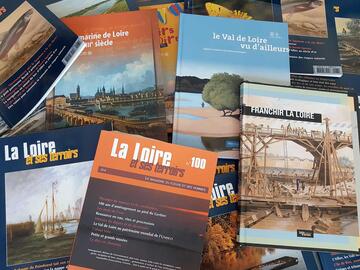
06/03/2025
[Fr] Décès de Philippe Auclerc
C'est avec tristesse que nous avons appris aujourd'hui le décès de Philippe Auclerc, co-fondateur de la maison d'édition "Loire et terroirs" et rédacteur...
Published on 05 March 2015 - Updated 04 May 2015
Cet article date d'il y a plus de 10 ans
Part of a partnership-based initiative undertaken by Mission Val de Loire and the urban planning agencies of Angers, Tours and Orléans with Loire Valley universities and schools, this theme is also addressed by the latest issue of the urban planning agencies' magazine. A topical subject in France and the Loire Valley: how can support best be lent to readopting Loire sites, how can new uses be developed in remarkable heritage sites that are being tightly monitored by flood risk prevention plans?
The urban planning agencies' 2015 winter magazine devotes a special report to flood risks coordinated by Jérôme Baratier, Director of the Tours urban planning agency, which reviews the discussions and actions under way in different territories including the Loire Valley:
In partnership with the urban planning agencies of the Orléans, Tours and Angers urban areas, Mission Val de Loire is setting up an initiative for testing the possible forms that renewing the Loire landscapes might take.
The point is to build a shared project culture that combines conservation of site heritage and landscape qualities with adaptation to contemporary residential, economic and cultural uses.
The following higher education institutions in the Loire Valley are involved:
Officially launched at the Loire Valley Rendezvous in November 2014, this initiative is carried out through university workshops on Loire Valley sites during the 2014-2015 university academic year.
Emphasis is placed on taking a local approach that focuses on the use made by inhabitants and visitors, and the aim is to find answers to practical questions: access to the river and islands, pathways and crossings, links between the hillside and the bank, compatibility between professional agricultural and tourist uses and leisure use (cycling, sailing, gardening, fishing), reversible forms of site-specific furniture and the conditions for introducing new materials.
A project booklet and short videos are in the pipeline to report on the method and lessons learned from the initiative in the autumn.